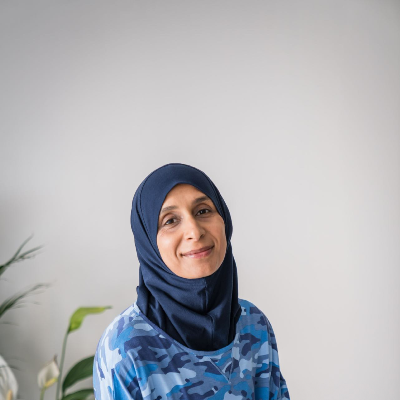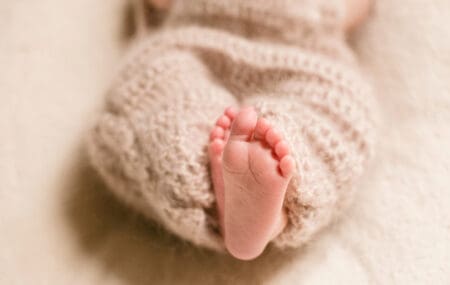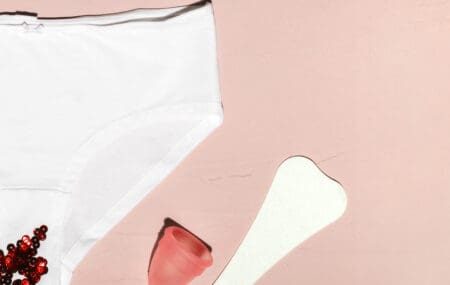
I Am Not Your Typical Pakistani Grandmother…
As-salāmu ʿalaykum!
My name is Sahir, I’m the founder of SAE Pilates and Fitness and a health and wellness expert. On most days, you’ll find me at the gym doing pull-ups, handstands, and living my absolute best life, alḥamdulilāh. I am also fiercely passionate about supporting women in midlife, perimenopause, and menopause.
Let me be honest: I’m 48 years old, and I feel stronger, healthier, and more confident than I ever did in my twenties. I’ve been in medical menopause for a year now, and contrary to all the negativity you often hear – I’m thriving.
But it wasn’t always like this.
A turning point
Fifteen years ago, I was an exhausted, overwhelmed mother of four, whose health was in shambles. I hit rock bottom and knew something had to change. I had to take control of my life, my health and invest in myself. That is exactly what I did! I worked tirelessly on myself and came out the other side. It certainly wasn’t a linear journey; there were many ups and downs, twists and turns. But I have always kept pushing through and never gave up on myself.
I have always struggled with my periods. They were heavy, painful and brought with them debilitating migraines. I would spend my period week and days leading up to them either lying in bed or on the sofa. I was an emotional wreck a lot of the time and they hampered my ability to lead a normal full life.
After the birth of my youngest child 16 years ago, my periods became completely unmanageable. I was barely surviving. With a young family to care for and a husband navigating his own chronic health challenges, I did what so many women do, and just ploughed through. Eventually, eight years ago, things took a turn. I became dangerously anaemic – my iron and haemoglobin levels dropped so low that I was rushed to A&E. That night, I received four pints of blood. The doctors performed an endometrial ablation, a procedure to remove the excess lining of my womb. For a couple of years, I felt some relief. I held on to the hope that I would feel better.
But in 2020, during lockdown, the symptoms returned. I began bleeding from my belly button, experiencing severe abdominal and leg pain, as well as excruciating ribcage pain. One day, I collapsed on the floor screaming in pain. My then 18-year-old son had to lift me into his arms and carry me to the sofa. I was back and forth to doctors and hospitals, sent for several ultrasound scans and appointments. It just went on and on.
Finally, in 2023, I was referred to a specialist Endometriosis Clinic. After thorough investigations, I received a diagnosis that left me shocked:
- Severe, advanced endometriosis
- Endometriomas on both ovaries
- Umbilical endometriosis
- Thoracic endometriosis
I was placed into chemical menopause to halt the progression. The biopsy before this treatment was excruciatingly painful. It knocked me off my feet for months (that’s a story for another day)! I have now been in Chemical Menopause for a year, no periods, no Endometriosis symptoms, I can honestly say I have my life back Allhumdulialh.
Why am I telling you this?
Because for the longest time, I thought what I was experiencing was “normal.” I thought I was just weak, or couldn’t manage.
As women we ignore and put up with so much because we feel like we should. As South Asians and Muslims, we mostly don’t discuss women’s health issues: periods, pregnancy, postpartum, peri-menopause and menopause. Anything to do with our pelvic or reproductive health is often brushed aside and not spoken about, even among women. As a result, so many women are struggling. They are not seeking the support, help or treatment they need. They have no idea how to advocate for themselves, or how to take ownership over their health and wellbeing. No idea how to prioritise their health or themselves. The taboo around women’s health is detrimental, damaging and isolating.
How do we change this?
It starts with educating, encouraging and supporting. We need to create spaces where young girls, teenagers, and women of all ages feel safe enough to speak about their bodies, share their experiences around their health and seek help and support. To break this narrative of everything around women’s health being taboo.
Even further, we need to educate the males in our families and communities, so they too can become informed, supportive, and empathetic.
Let’s normalise women putting their health first – physically, mentally, and emotionally. Our journeys through life are never linear. But we can definitely make that journey smoother and more enjoyable by making health a priority from a young age.
When we have healthier, happier, and more fulfilled women, we have healthier, happier communities and a more fulfilling society.

